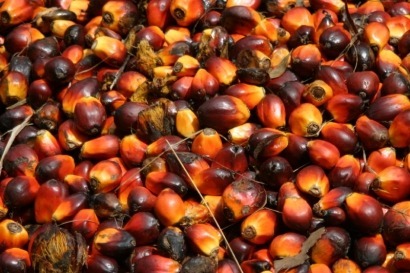
The company reveals that construction of the processing plant near São Domingos do Capim — approximately 100 miles east of Belém, the state capital of Pará — is expected to begin in 2013, with operations commencing in 2016. On completion, it will form part of ADM’s overarching biofuels strategy. “We share the view that these nascent biofuels made from non-food sources will be part of a comprehensive, diversified global energy supply,” says the company. “Looking ahead, our biofuels business will continue to represent… a key means by which we fulfil our vital purpose: connecting the harvest to the home to serve growing global demand for food and energy.”
“This investment adds a new crop to our value chain in Brazil and diversifies our feedstock options for biodiesel production there, while at the same time supporting our commitment to sustainability in terms of both agricultural production and the livelihoods of farm families in Brazil,” explains ADM Chairman, CEO and President, Patricia Woertz.
ADM’s sustainable palm and biodiesel production will also be part of Brazil’s Social Fuel Stamp program that provides incentives for biodiesel producers to purchase feedstock from small family farms. As part of this program, ADM will contract with approximately 600 family farms for 6,000 hectares of palm production and provide them with technical assistance focused on sustainable agricultural practices.
“We are encouraged by the commitment of the Brazilian government to promote sustainable agricultural development that not only helps meet the growing energy demands of the country, but also improves the livelihoods of thousands of farm families through the Sustainable Fuel Stamp program,” said Domingo Lastra, president of ADM do Brasil Ltda. “Our investment in sustainable palm production will positively impact the lives of more than 3,000 people through higher farm incomes.”
ADM and sustainability
“ADM is committed to responsible stewardship of the environment and the social and economic well being of the communities where we live and work,” says the company, which supports the development of sustainable palm sources for the benefit of growers and customers, and is a member of the Roundtable on Sustainable Palm Oil. In Brazil, ADM has a partnership with Aliança Da Terra, a leading advocate for sustainability, to encourage Brazilian soy growers to adopt sustainable farming practices, and the company is a signatory of the Soy Moratorium, “affirming our commitment to not purchase soybeans grown in recently deforested areas of the Amazon Biome,” it stresses.
ADM in Brazil
ADM began operations in Brazil in 1997 after purchasing soybean processing plants in Rondonópolis, Campo Grande, Joaçaba, Três Passos and Paranaguá. In 2002, ADM opened a fertilizer blending facility in Rondonópolis; in 2007, the company began biodiesel production in Rondonópolis; and in November 2010, ADM announced plans to construct a biodiesel plant adjacent to its existing oilseed operations in Joaçaba.
Today, ADM has more than 3,000 employees in Brazil and is the largest domestic soybean meal supplier, second largest soybean crusher and second largest producer of bottled oil, with 21 percent of Brazil’s bottled oil market. The company is also the largest soybean meal exporter, the second largest exporter of soybeans and the Brazilian economy’s sixth largest exporter overall.
Why biofuels?
A global population that will surpass 8 billion by 2030 is expected to consume 55 percent more energy than it used in 2005. But with petroleum reserves declining and greenhouse gas emissions from fossil fuels increasing, traditional approaches can’t be the only answer to tomorrow’s energy needs, emphasises ADM in a corporate brochure explaining its role in biofuels. The company goes on to cite a series of headline figures just in the US, which provide a compelling argument in favour of sustainably produced biofuels.
The US Department of Energy estimated in 2008 that gasoline prices would have been 20 to 35 cents per gallon higher without corn-based ethanol. This amounted to an estimated yearly savings of between $150 and $300 per household, or approximately $28 billion to $49 billion in annual savings for the nation as a whole.
The Argonne National Laboratory notes that US ethanol use in 2007 reduced greenhouse gas emissions by approximately 10 million tonnes, the equivalent of taking 1.5 million cars off America’s roadways. Looking ahead, the Natural Resources Defense Council has estimated that by 2050, biofuels could reduce US greenhouse gas emissions by 1.7 billion tonnes per year, which is roughly equivalent to 80 percent of current transportation-related emissions.
Serving as a renewable, home-grown source of energy Biofuels production in the US and Europe has cut crude oil use by 1 million barrels per day, according to the International Energy Agency.
“Each of these factors helps explain why we at ADM are confident in biofuels’ potential to address the world’s growing demand for energy,” the company ends.
For additional information:

